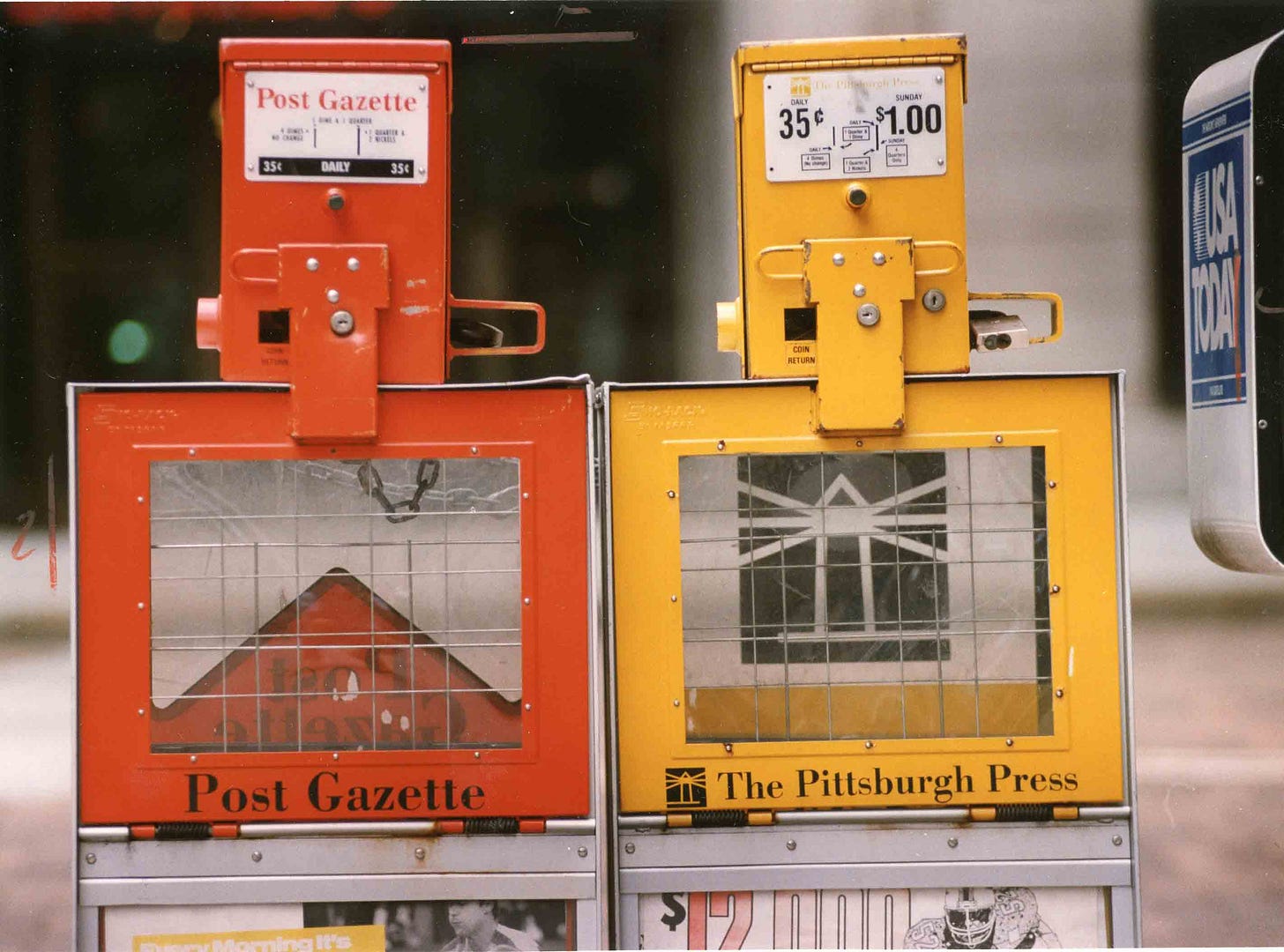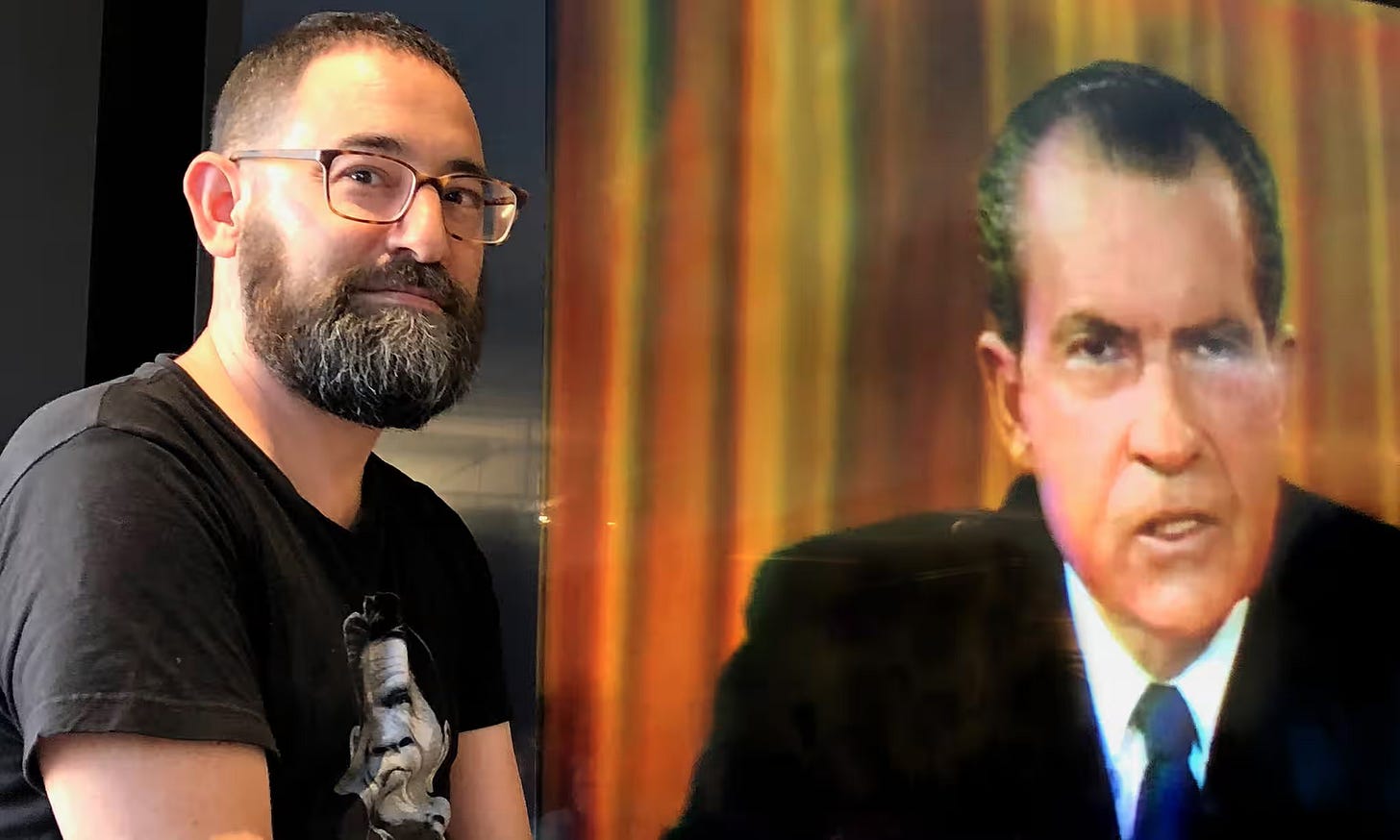To save democracy, journalists must change
A conversation with historian Rick Perlstein, who argues that journalism has failed democracy, in search of how it can do better
The media is in critical condition, however you look at it. The Washington Post and the Los Angeles Times have laid off significant percentages of their staff; Sports Illustrated and Popular Science have closed up shop; even well-funded news startups haven’t been able to stay in business.
But, according to journalist and historian Rick Perlstein, economic woes aren’t the worst of the media’s problems. The real threat to watch for isn’t the one to the journalism business. It’s to all of us.
Perlstein is best known for his sprawling, four-volume account of the American conservative movement’s growing influence and ultimate rise to power: Before The Storm, Nixonland, The Invisible Bridge, and Reaganland. In a new column over at The American Prospect, Perlstein builds on his previous accounts, exploring the idea that the media, far from being a neutral observer, has played a leading role in creating the current crisis of American democracy.
As Perlstein tells it, the idea that journalists can tell a balanced, both-sides story about American politics is a fiction. Rather, in describing the struggle between an increasingly authoritarian Republican Party, on one hand, and, on the other, a Democratic Party too willing to compromise, the story simply helps the authoritarian side, pushing the national conversation and the country ever further to the right.
We talked to Perlstein about his idea that these three institutions are locked in an “infernal triangle,” the historical roots of the problem, and where he sees hope for the future of journalism — and democracy.
How does this story you’re telling about the media fit into the overall story you’ve been telling the rise of conservatism and what’s wrong with American democracy?
So I began this work in the mid-1990s; as you know, the conventional wisdom was that it was the end of history, and we’d kind of figured it all out, settling on this humanely inclined neoliberalism that works by unfettering markets and bureaucratizing government. You know — they’d answered everything both politically and in terms of policy.
Counter to that, the basic plot of my first book is how a grassroots insurgency took over the Republican Party, ran in Barry Goldwater a far-right ideological presidential candidate who lost, and then the pundits declared conservatism dead and buried. And here we are.
That book and the ones that follow had a hidden theme: the fecklessness of pundits and especially their predictions. There’s always been this argument about the role of the media in my work.
This is one point of what you’re calling the “infernal triangle,” right?
My basic underlying theory is that the elite media follows the cues of a lot of cultural elites in America in downplaying the structural tensions within American society, the fact that America's always been a more frightening, weird, violent, nihilistic place than our dominant narratives allow.
And in this moment of crisis the media has failed us in a much more palpable way. We're literally contending with the possible end of American democracy, and I’m trying to explain how the routines, paradigms, structures, habits of elite political journalism have utterly failed to give Americans a working sense of the reality of how American politics functions right now.
So talk about the structural problem you’re seeing: Are people in the media missing the narrative? They misunderstand all of these roles?
You can't understand Republican authoritarianism without understanding how much both-sides journalism allowed it to flourish, right? And you can't understand the Democratic Party's fecklessness without seeing it partially as a function of answering all too obediently to an elite pundit class whose dominant narrative of the Democratic Party is that it must be as dangerously ideological as the Republican Party, right?
If you equate the sides, you're biased towards the side that lies, cheats, and steals. Yes. You're putting a thumb on the scales and calling it fairness.
Does this also have to do with the fact that they are convinced they occupy a neutral perspective?





